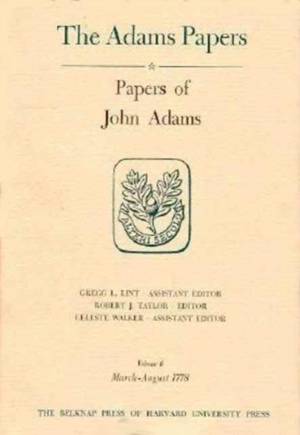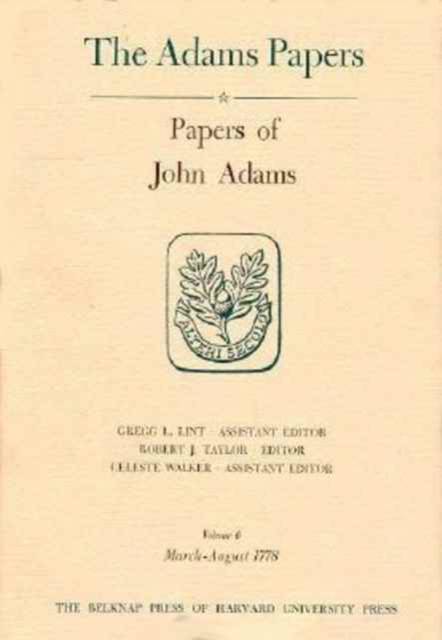
- Retrait gratuit dans votre magasin Club
- 7.000.000 titres dans notre catalogue
- Payer en toute sécurité
- Toujours un magasin près de chez vous
- Retrait gratuit dans votre magasin Club
- 7.000.000 titres dans notre catalogue
- Payer en toute sécurité
- Toujours un magasin près de chez vous
Description
These volumes document John Adams's thinking and actions during the final years of his congressional service and take him through his first five months as a Commissioner in France in association with Benjamin Franklin and Arthur Lee.
While Adams was still in Philadelphia, military matters continued to he his major concern. Most demanding was his presidency of the Board of War, which took up his "whole Time, every Morning and Evening." In general, though, the documents and reports of his conduct reveal a commitment to a national outlook. Congress should be a national legislature, and personal, state, and regional rivalries should give way to concern for the greater good--these were his deeply held convictions. When chosen a Commissioner to France, Adams was reluctant to go. But duty and the honor of the position, along with the encouragement of an understanding and self-sacrificing wife, persuaded him to accept. With son John Quincy for a companion, he crossed the Atlantic to a new career. His initiation into the complexities of diplomacy brought a growing awareness of European affairs and the problems facing the new nation in the diplomatic arena. Letters deal with such varied topics as the supervision of American commercial agents in French ports, regulation of privateers, settlement of disputes between crews and officers, negotiation of loans, and help for American prisoners in England. Personal letters run the gamut from Adams's views on the proper conduct of American diplomacy to strangers' pleas for aid in locating relatives in America. Contrary to the usual impression of Adams as little more than a clerk for the Commission, evidence shows that he was its chief administrator. Acclimation to living abroad among diplomats did not stifle Adams's yearning for the simplicities of private life in the midst of his family. Yet as the important and interesting documents of this volume show, the groundwork was being laid for his even more significant role in diplomacy.Spécifications
Parties prenantes
- Auteur(s) :
- Editeur:
Contenu
- Nombre de pages :
- 936
- Langue:
- Anglais
- Collection :
Caractéristiques
- EAN:
- 9780674654433
- Date de parution :
- 01-01-86
- Format:
- Livre relié
- Format numérique:
- Genaaid
- Dimensions :
- 179 mm x 257 mm
- Poids :
- 2385 g







